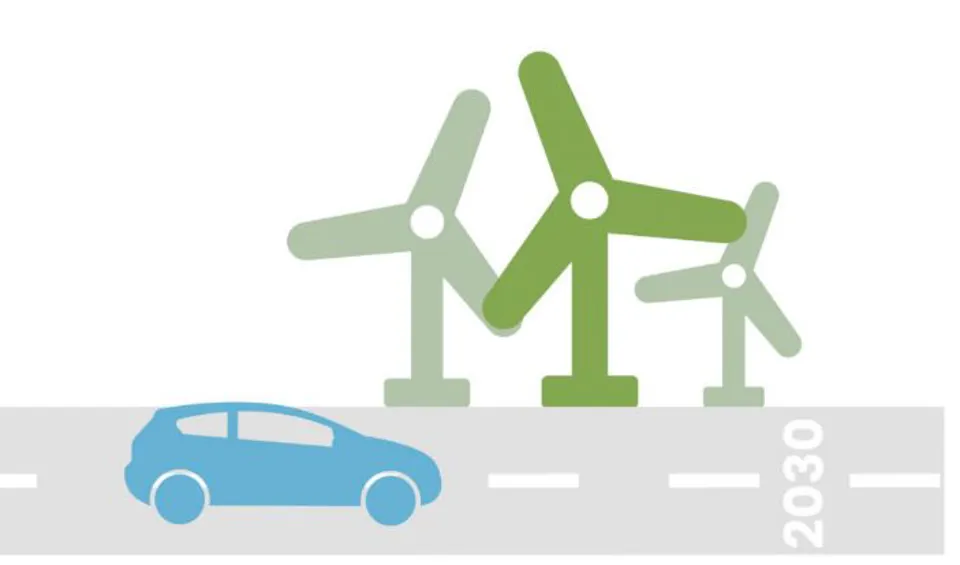A new report from the Society of Motor Manufacturers and Traders (SMMT) has said the UK could suffer 90,000 job losses If Government fails to help the sector ‘Build Back Better’ after the COVID-19 crisis.
The SMMT’s new ‘Full Throttle: Driving UK Automotive Competitiveness’ plan challenges Government to create a dedicated ‘Build Back Better’ fund to support the sector, swell UK battery production for electric vehicles (EV) with new gigafactories, install 2.4 million charge points and extend the plug-in car grant (PiCG).
Its suggestions feature in a list of 12 proposals set out ahead of the industry body’s International Automotive Summit this morning (June 29).
Hyundai Motor Europe president and chief executive Michael Cole and Stellantis country manager and senior vice-president highlighted that affordability and accessibility need to be at the forefront of any plan.
And SMMT chief executive, Mike Hawes, said that manufacturing risks losing out amid “ferocious” competition if the UK automotive sector is not boosted by a structured Government plan.
 Hawes said: “The next few years represent a critical period for the sector. The pace of technological change is accelerating and the competition more ferocious.
Hawes said: “The next few years represent a critical period for the sector. The pace of technological change is accelerating and the competition more ferocious.
“If we are to secure vehicle manufacturing in this country, with all the benefits to society that it brings, decisions need to be made today.
“The automotive sector is uniquely placed to help this government deliver on its agenda; to level up, deliver net zero and trade globally.
“The Government has made clear its support for the sector in its negotiations with Europe, so now is the time to go full throttle and take bold action to support one of Britain’s most important industries.”
High stakes EV transition
The SMMT’s report, written by Public First, highlighted that the automotive manufacturing sector employs around 180,000 people across the UK, contributing £15bn to the economy, stating that it is “an industry that warrants unambiguous backing”.
It said that the proposed ‘Build Back Better’ fund would support skills and help the sector transition to Net Zero.
The report calls for a binding target of 60 GWh of battery capacity be built by 2030 to give British manufacturers the capability to produce up to one million EVs a year and ensure tariff free access to critical markets in the EU.
It also calls for the installation of at least 2.3 million charging points nationwide before the end of the decade.
The SMMT believes this level of infrastructure would ensure all drivers – especially those without driveways – have the confidence to invest in the latest zero emission technologies.
It said: “The stakes are high. In a best-case scenario with the sector transitioning successfully to a zero emissions future, with ambitious global trading terms, there is the potential to gain 40,000 new, well paid and highly skilled sector jobs by 2030. This would provide a significant impact in auto heartlands such as the North-East and West Midlands, directly helping ‘level up’ the UK.
“Without the competitive conditions, however, the UK’s automotive industry risks decline. In a worst-case situation, with the sector left stranded, analysis shows that around 90,000 jobs could be lost compared with the central scenario, with most of these outside London and the South-East, increasing UK regional inequality.”
Value key to EV transition
Speaking at today’s International Automotive Summit, Jones said that the focus at Stellantis was “affordability for all” as consumers were urged to transition to electrified vehicles.
 Jones told AM that Government’s reduction in PiCG EV purchase incentives while urging their widespread adoption has car buyers “thinking again” in an interview earlier this year.
Jones told AM that Government’s reduction in PiCG EV purchase incentives while urging their widespread adoption has car buyers “thinking again” in an interview earlier this year.
And she insisted today that plug-in hybrids (PHEV) remained the best transition tool to get consumers to consider a full EV switch.
Jones added: “We’re all talking about total cost of ownership, what it actually costs to live with it.
“Plug-in hybrids are here right now that offer a great transition.”
 Cole, speaking from the European launch of the new Ioniq 5 hatchback in Valencia, was also concerned about the ongoing cost of EVs and the impact on that on UK consumers.
Cole, speaking from the European launch of the new Ioniq 5 hatchback in Valencia, was also concerned about the ongoing cost of EVs and the impact on that on UK consumers.
He told the SMMT summit that German consumers continue to benefit from a €9,000 incentive to buy a new EV, adding: “We can do so much, but other stakeholders have to play their part.
“It’s a lot more difficult than putting a number out there and simply saying ‘we’ll get there’. I wish it was that easy, we’d sell a lot more cars if I could just set a number at the start of the year and expect to get there at the end.”















Login to comment
Comments
No comments have been made yet.